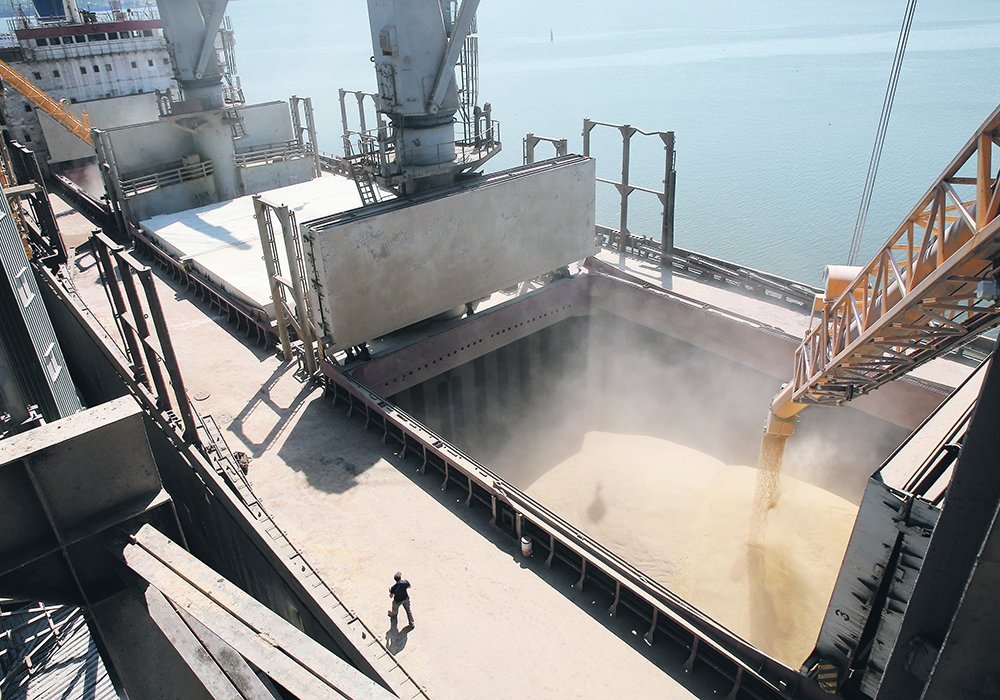A national coalition focused on agricultural trade is calling for the creation of a trade implementation position within Global Affairs Canada.
However, the country’s chief negotiator is spilling cold water on the idea.
In its list of priorities for 2021, the Canadian Agri-Food Trade Alliance said the creation of such a position is needed in Global Affairs to monitor and facilitate engagement with the agri-food sector on the implementation of free trade agreements.
The position would “strengthen Canada’s capacity to mobilize resources when commitments in (free trade agreements) are not respected and negotiated outcomes for agri-food exporters are not achieved,” according to CAFTA.
Read Also

Farming Smarter receives financial boost from Alberta government for potato research
Farming Smarter near Lethbridge got a boost to its research equipment, thanks to the Alberta government’s increase in funding for research associations.
Creating the position is included in CAFTA’s list of priorities for 2021, released April 9, but the idea had previously been discussed with federal officials.
Steve Verheul, Canada’s top negotiator, confirmed during a March 12 international trade committee meeting that he had discussions with CAFTA about the position.
“We can certainly look at something like that, but the notion of having a new position created that would deal with these issues would have a lot of overlap with what is already going on, and that person —whoever it might be — wouldn’t necessarily have the same kind of hands-on knowledge as the rest of us who are engaged in all this,” he told MPs.
Verheul said he suggested it would make sense to instead have “something like a regular summit, where we could have conversations between the agriculture sector and most of the people who are actually working on the ground on these issues, in order to make sure we get the details directly to them.”
In listing its priorities, CAFTA noted that according to the World Trade Organization, nearly 100 governments have introduced more than 200 trade restrictions in recent months.
Beyond creating the new position, the group proposes parliamentarians conduct a competitiveness study of Canada’s recent free trade agreements “to identify opportunities to maximize benefits of trade agreements for agri-food and where implementation work remains.”
It also calls for more intense efforts at the WTO level to ensure modernization of rules-based trade is completed, enhanced international relationships and market diversification.
Specifically, CAFTA wants all members of the Comprehensive and Progressive Agreement for Trans-Pacific Partnership (CPTPP) to ratify the pact. Ditto, they say, for those countries yet to formally ratify the Canada pact with the European Union, the Comprehensive Economic and Trade Agreement.
Meanwhile, a recent WTO meeting shows that concerns over the impact of COVID-19 on agricultural trade continues.
RELEASE: Actionable policy recommendations on how agri-food trade can help anchor Canada’s economic recovery. https://t.co/K6hAdMC7cs #WTO #CETA #CPTPP #RulesBaseTrade #Cdnag #cdnpoli #cdntrade pic.twitter.com/H9SApubVxw
— CAFTA ACCA (@CAFTA_ACCA) April 9, 2021
During March 29 – 30 meetings, members examined agricultural support policies and the impact they are having on global trade.
Questions were raised over several support programs implemented around the world, including some related to Canada. Member countries continue to question Canadian policies for the milk and dairy sector.
“The focus of current attention is a recent increase in farm gate milk prices and a parliamentary bill prohibiting the federal government from making any commitment in trade agreements that would decrease tariffs or increase tariff rate quotas applicable to dairy products, poultry or eggs,” read a statement from the WTO.
Canada has registered more than 30 agriculture support programs related to COVID-19 with the WTO.
During the meeting, a presentation from the United Nations Food and Agriculture Organization to members forecasted trends.
“According to the medium-term projections, prices of main agricultural commodities are expected to remain broadly flat to 2029 as increases in demand are expected to be met by efficiency gains in production,” said the report.
The FAO noted the pandemic continues to impact many countries.


















